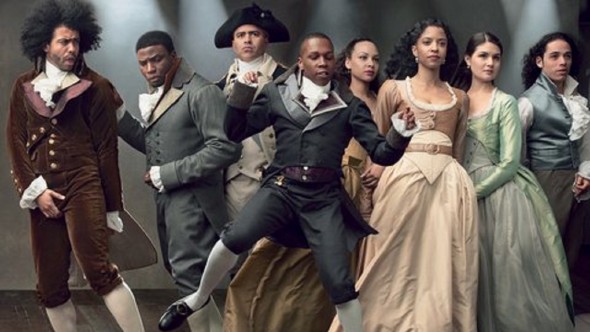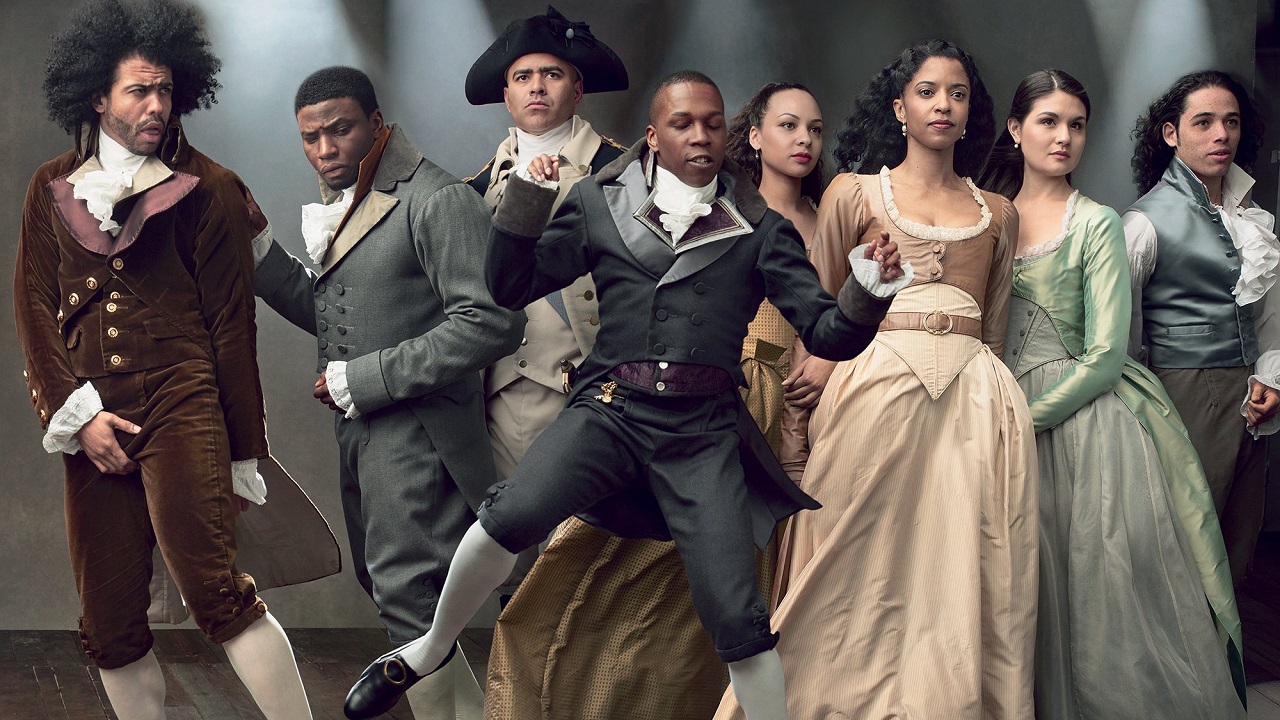Doing things well is an under-appreciated aspect of success in pop culture. When one movie breaks box office records, and another flops, the punditry are left answering the question: why? The answers are myriad: the new trend, the latest fad, this political cause, all of it explains why this did better than that.
Consider the concept of “superhero fatigue.” Since at least Iron Man (and maybe since Spider-Man), superhero movies have driven the conversation (and the studio budget) surrounding genre films. With that has come the idea of “fatigue.” The narrative goes something like this: somewhere in the hive-mind that is the movie-going public, there is a number of superhero movies and TV shows that is “enough.” Once that point is reached, we will have achieved “peak superhero,” and caped crusaders will begin their long slow decline back into obscurity.
In opposition to that narrative, of course, there’s a counter-narrative – superhero movies are here to stay, and we can all welcome our vigilante cinematic overlords for a glorious thousand-year reign at the top of the box office. Age of Ultron disappoints at the box office? The Age of Superhero Fatigue has arrived! Ant-Man outperforms expectations? Superhero Fatigue was never real to begin with!

This sort of narrativization is endemic in our popular discourse, particularly online. We treat football and basketball games not as one-off contests between flesh-and-blood human beings, but as proving grounds for our pet theories of the game (the spread offense is dead! Long-live the spread offense!) A not-guilty verdict or court ruling in a prominent case is never about the facts, or the law, or even the persuasiveness of the attorneys – it’s about broad societal trends and of-the-moment hot button issues.
But consider the alternative: maybe Age of Ultron didn’t do as well at the box office because it wasn’t a particularly well made movie. Maybe Ant-Man succeeded because it was a well made movie, and Paul Rudd is a national goddamned treasure. Maybe the Broncos beat the Panthers because they were slightly better athletes – or, God forbid, because they happened to have a better night on February 7, 2016.
While it seems obvious, this sort of explanation tends to get dismissed, or ignored. Maybe this version of events is acknowledged, but is usually swiftly sidelined – “yes, yes, the movie wasn’t very good, but the reason it really failed was because of [my pet theory].”
Part of this tendency is pure capitalism: articles that just say “Marvel is good” or “Marvel is bad” don’t really get all that many clicks (except maybe hate-clicks from angry partisans). But part of this tendency comes from something else – a tendency to see patterns where there are none. When we look up at the moon, our brain can’t help but see a face; when we see four spins of the roulette wheel come up red, we can’t help but thing “SURELY black is due!” (Or, just as surely, RED IS ON A HOT STREAK).
What I want to argue here is that quality and execution matter. When confronted with success, our default paradigm should not be one of hot-takes and trend-spotting. Instead, we should take a minute to acknowledge that sometimes success just comes from success: the most likely reason why one thing performs particularly well or particularly poorly is how good the thing is in the first place.
Some examples, from a variety of contexts, help illustrate the point.
1. Hamilton and gimmicky genius
Hamilton is the latest must-see Broadway musical, and the Original Cast soundtrack is a must-listen album. Based on the life of Founding Father Alexander Hamilton, the show incorporates a wide variety of musical styles, most prominently hip-hop and rap. In explanation of Hamilton’s success, it is tempting to point to broad societal trends: shifting demographics, racial inclusion, an acceptance of hip-hop as a musical style, etc. And, sure, all of those things are present in the Hamilton success story.

But lost in all of that is a much simpler explanation of Hamilton’s success: it’s really goddamned good. Everything about it is executed to perfection. The lyrics are snappy, the jingles are catchy, the staging is breathtaking, the story catches hold of you and doesn’t let go, and the acting is spot-on.
The one and only complaint I’ve seen about the show is that the juxtaposition of hip-hop and cross-racial casting with a story from the 1700s is “gimmicky.” OK, but so what? If a “trick play” gets a touchdown, it’s still worth the same number of points – and Hamilton is a triumph by any standard.
The reason this is important to keep in mind is that there was nothing inevitable about a hip-hop musical working, or a story about Alexander Hamilton resonating so deeply with the modern era. And if you seek to replicate the success of Hamilton, you probably won’t do it by making a rockabilly retelling of the life and death of Benjamin Franklin or a hip-hop opera about the Apollo Space mission – you’ll probably do it by finding great actors to sing well written songs that tell a captivating story.
2. Destiny‘s perfectly imperfect execution
For a slightly different look into the importance of quality and execution, consider the first-person shooter Destiny for PS4 and X-Box. Created by Bungie, the studio that brought the world Halo, Destiny tells the story of a space commando dedicated to defending Earth from marauding space aliens known as the Hive, and their leader Crota, who…
Just kidding. No one really cares about the story of Destiny. The plot of Destiny and (to a slightly less extent) its sequel The Taken King is, not to put too fine a point on it, an unmitigated garbage fire. On my first play through the story mode I was utterly and completely lost as to who I was fighting and why I was fighting them at any particular moment. The scripts sound like they came from a science fiction/fantasy mad-libs, and the missions only barely hang together to form a coherent story arc.
But guess what – I didn’t really care. Because everything else about Destiny is executed to near perfection: the controls are pitch-perfect, the learning curve is steep without being daunting, and the weapons and armor drop just often enough to keep you grinding into the wee hours.

So we have to remember that quality isn’t a single variable. You can’t explain the game’s success in generic terms: you have to focus in on the technical perfection that makes it work – god knows the world wasn’t starving for another video game about a space marine head-shotting aliens, and you’d be sorely mistaken if you tried to replicate Destiny by reading the scripts.
3. Fury Road‘s feminist success story
We don’t talk enough about Mad Max: Fury Road on this website. I don’t say that as a criticism: I just mean that any pop culture website which hasn’t devoted every single bit and byte of its digital life to Fury Road analysis and coverage really isn’t pulling its weight. The movie was a triumph, and was justly rewarded with both critical and box-office success.

In the wake of Mad Max, the online commentariat and punditocracy found itself in a tussle about the feminist themes of Mad Max. And to be sure, Mad Max is a movie that is not afraid to be feminist: the control of women’s bodies is central to the plot, and Charlize Theron’s Imperator Furiosa is the breakout hero of the movie, overshadowing even the titular Max at times.
But the beating heart of Fury Road is a kick-ass action movie. George Miller is a master at the height of his game, teaching the rest of the world how to blow up cars in the desert for fun and profit. The progressive themes are just an added bonus, a buy-one-get-one free deal for watching a great film.
Why does this matter?
The reason this is important is that the wrong narrative causes people to make the wrong choices, and learn the wrong lessons. The lesson from Fury Road isn’t that we should be making more movies with feminist messages (we should), or that we should be making more movies with car chases and shiny-chrome (we should): the lesson of Fury Road is that we should be making great films, and let the message come along for the ride.
For a good example of this, check out Richard Rosenbaum’s piece on this site about the difference between the movie adaptations of The Lego Movie and Battleship.
How to Squeeze Stories from Stones — or, Why The Lego Movie was Good and Battleship was Bad
Neither Lego nor Battleship are intrinsically “good” or “bad” toys to base a blockbuster movie on, just as the Disney ride Pirates of the Carribean wasn’t an inherently better premise than The Haunted Mansion. What separates those films is the execution – every decision from the script to the casting to the special effects lead to a particular end-product. In some cases, that end-product was good; in others, it was bad.
But I feel like Hollywood and other major content-producers tend to learn the wrong lessons – they see the success of Pirates of the Caribbean and try to make more movies about rides, or about pirates, without focusing on the aspects of the film that make it work. In the wake of Deadpool’s success, director James Gunn raised a similar concern in a Facebook post, saying:
over the next few months, if you pay attention to the trades, you’ll see Hollywood misunderstanding the lesson they should be learning with Deadpool. They’ll be green lighting films “like Deadpool” – but, by that, they won’t mean “good and original” but “a raunchy superhero film” or “it breaks the fourth wall.” They’ll treat you like you’re stupid, which is the one thing Deadpool didn’t do.
I think this is exactly right. Trend-spotting is fun, and sometimes there really is more to the story. There’s nothing wrong with trying to identify the shift in action movie preferences in the post-9/11 era, or argue that superhero movies are part of a larger societal trend.
My hope, though, is that you’ll start read these sorts of analyses with a critical eye, and with a large grain of salt: a lot of the time, good things are good because they were made well, and bad things are bad because they were made poorly.

Has Ben Adams singlehandedly undermined one of the reasons for Overthinkingit.com’s success? Using Legal, Literary, Film, Music, Genre, and Social Science theory to explore and explain pop culture by saying that there is nothing more to see than good stuff being made by smart people?
Are we living in a Coen brothers world where nothing make sense or fits a pattern and we just have to keep trudging along until the next brilliant craftsman feeds our collective pop culture guzzling gullets?
He is asking us to underthink things -_-
How would one underthink something?
Thinking something would be experiencing followed by “do I like it or do I not like it.”
Overthinking is “subjecting it to a level of scrutiny it probably does not deserve.”
Underthinking would be not even experiencing and then “generalizing in order to find a trend projected into the future.”
Is it possible to have our cake and eat it, too? By which I mean, could we say one of the ways to determine whether a movie is good or bad is by seeing how it dialogs with a trend? After all, taste is subjective.
Like, to take your idea of Superhero Fatigue – what if Sam Raimi’s Spider-Man came out in 2016 instead of 2002? Would it be a good movie, or would it seem trite, cliched, and forgettable? I like Spider-Man quite a bit and would call it a good movie, but objectively, it’s a fairly standard superhero origin story. It felt fresh and unique when it came out, but if the exact movie came out today, it might qualify as bad, or at least, mediocre.
I’m an indie author. I see this question a lot in writing circles when people bring up writing to market as if it is in opposition to writing well. But I have seen firsthand the way the market reacts to different books, all interesting stories well told, and inherent quality doesn’t seem to have a lot of correlation to success.
I agree with the general idea that social responsibility has little to do with the success or failure of a media property. But I’m not sure being good matters much either.
Here’s the thing: how do we define good? The Force Awakens made a bajillion dollars. I can go on for hours about all the ways it’s bad. Same for The Avengers. What about the properties that are good that fail? What about the properties that are bad that succeed?
So granted, not everything that floats to the top is cream. But I think there’s something to what Ben is saying, especially if we put ourselves in one specific context: imagine that you’re looking at a successful property and trying to reverse-engineer that success, and someone floats a hypothesis like “maybe hard-R superhero movies are IT, now.” Or “maybe feminist reboots of action franchises are IT.” Or hip-hop musicals, or Star Wars sequels, or whatever. And I think the question that you have to ask is, “well what about a really terrible hard-R superhero movie: would that still have done as well?”
Star Wars is an interesting example. We’ll have to agree to disagree about Force Awakens, Crystal. But for someone like me, who thinks it was a really good movie, the question remains “Well what about a terrible Star Wars movie: would that have done as well?” And the answer, if you look at the preview trilogy, is pretty much yes. (On the other hand, with deadpool: would a godawful hard-R superhero movie have done so well? Probably not.) Of course this isn’t a perfect controlled experiment. And of course people won’t always agree as to whether a specific story is good. But you see how this can be a helpful way to check your own intuitions, right?
So, let me see if I can rearticulate your point in contrast to my statement above.
It is not that Ben Adams wants to do away with literary, musical, film, etc theories for understanding the pop culture of the past, but in fact that he wants to do away with the propensity of using over-generalizations about success to predict future success.
I think that there is literature to support this conclusion. I believe that this is one of the fundamental arguments of “Black Swan” by Nassim Nicholas Taleb. I believe that this idea is fundamental to the conclusions of Duncan J. Watts in “Everything is Obvious *once you know the answer.”
amiright?
To me, the interesting question is how do you define good? Taking TFA as an example, there are plenty of virtues to the film and plenty of problems. So how do we decide which parts matter in terms of good? If I say TFA is bad because there are too many plot holes I’m right and if I say it’s good because the specifial effects are amazing I’m also right. The word I see thrown around the writing sphere is “commercial,” which typically means has a strong hook that appeals to fans of the genre. But what makes a super hero (or any other genre) good vs bad? Rotten tomatoes critic and user ratings offer differ wildly.
Or to pick an example that better fits the point– I can say Jurassic World is bad because it’s sexist, or bad because it has a lot of characters in charge who don’t seem to know what’s going on, or that it’s good because it has awesome dinasaurs and great action scenes. And that is how I feel about JW — I’m of all three opinions. We can agree that bad /= sexist and visa versa but what about the rest of if?
@Crystal – I think that the success of both TFA and JW is even more ethereal than you seem to be claiming. TFA and JW are exciting and fun and good sequels because they “feel” like their predecessors.
Whenever someone has asked me if I like TFA I tell them, “it is the Star Wars movie we needed, not the one we deserved.” It felt like Star Wars, the three principle characters were engaging, and the plot felt like Star Wars (maybe a little too much). It also felt very Losty – lots of action and a breakneck plot but too many loose threads and not enough meaningful backstory/connections.
In my opinion feel = success.
A similar argument could be made for JW. The Lost World was not a proper sequel (it was set on a different island, no theme park, dinos escape to LA, etc) and neither was JP3 (also on the wrong island, no theme park, shoehorning Alan Grant, etc). Jurassic World felt like what Jurassic Park would have evolved into and it was fun to see thousands of people running from dinos on the loose. It even played up the superhero movie troupe of having a Hulkbuster fight between the T-Rex and I-Rex.
Again I agree with Ben Adams that people looking to generalizations or genre to predict the future are doing it wrong. If corporations that fund art want to make money they need to fund projects that “feel” right. There is no magic formula, genre or otherwise, to create art that sells.
I do like the idea of a feel, though I’m sure some of us will disagree on what the defining trait of a given movie is. Defining a sequel on its ability to capture the vibe of its predecessor works for artists and marketing people because the product is based on a proven success (no one was ever fired for greenlighting a sequel to a winner), but what about when we look at the original movie? How do we define why Jurassic Park is good? (I’ve never met anyone who thought otherwise. It’s really the perfect blockbuster). What about A New Hope– a much more debated movie during its release?
It feels to me as though you have hit to sweet spot of Ben Adams argument. There is no way to know for sure what the marketplace will value before it happens, so instead of trying to find a formula to predict whether Star Wars will work in 1974, you commit a relatively modest budget to a committed, intelligent, and sincere creators vision and hope for the best.
Let’s assume Ben is on the money.
– Is there a way to control for craftsmanship?
If the answer is no, then there’s no point in worrying about wether a film will be “good” or not. That’s out of your control, so all you can decide is where to point the talent.
If the answer is yes, then the question becomes, will trendy topics attract better talent? Perhaps Superhero films are dominating the theaters because that’s what the talented people want to work on. Maybe more feminist action reboots should get green-lit, because that’s what talented people will be excited to work on. The Lego Movie not only taps into the childhood nastalgia of its audience, but also of its writers, actors, set designers.